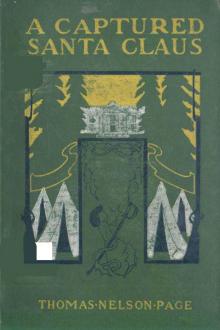A Captured Santa Claus
Book Excerpt
"May I see it?"
"Certainly." A half dozen hands were stretched out to pass it to him. He handled it tenderly.
"I, too, have a little one at home," he said in a low voice, as he handed the doll back to Colonel Stafford. "The child of my only son. He was killed at Genies's Mill."
That night Colonel Stafford and Colonel Denby slept under the same blanket.
IV
THE BOYS LEARN SOMETHING OF WAR
During the whole year the children had been looking forward to the coming of Christmas. Charlie's outbursts of petulance and not rare fits of anger were invariably checked if any mention was made of his father's injunction to take care of his mother and little sister; and at length he became accustomed to curbing himself by the recollection of the charge he had received

 Free Download
Free Download


































-itok=vcKIB5v1.jpg)